Romantic getaway turns into fight for survival: tourists stranded amidst violent protests
No one dared to speak. Every intersection remained littered with burning cars and the aftermath of bombings. Demonstrators constantly stopped traffic. The violence and hellish scene repeated kilometer after kilometer.
- 2 years ago
July 25, 2024
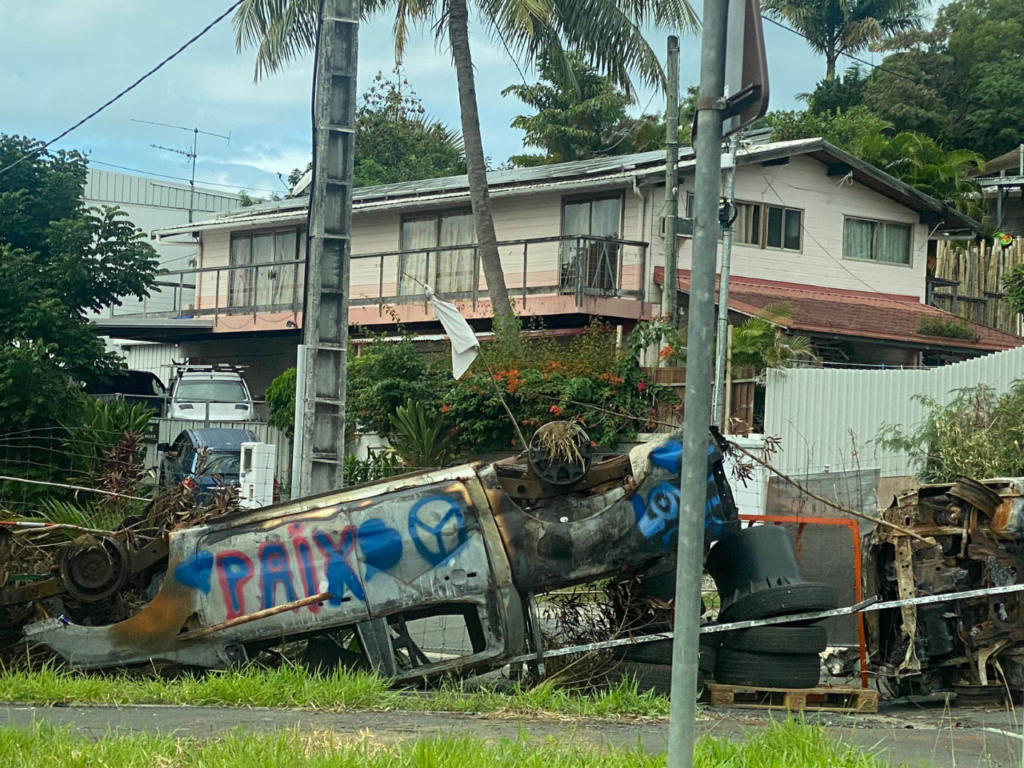
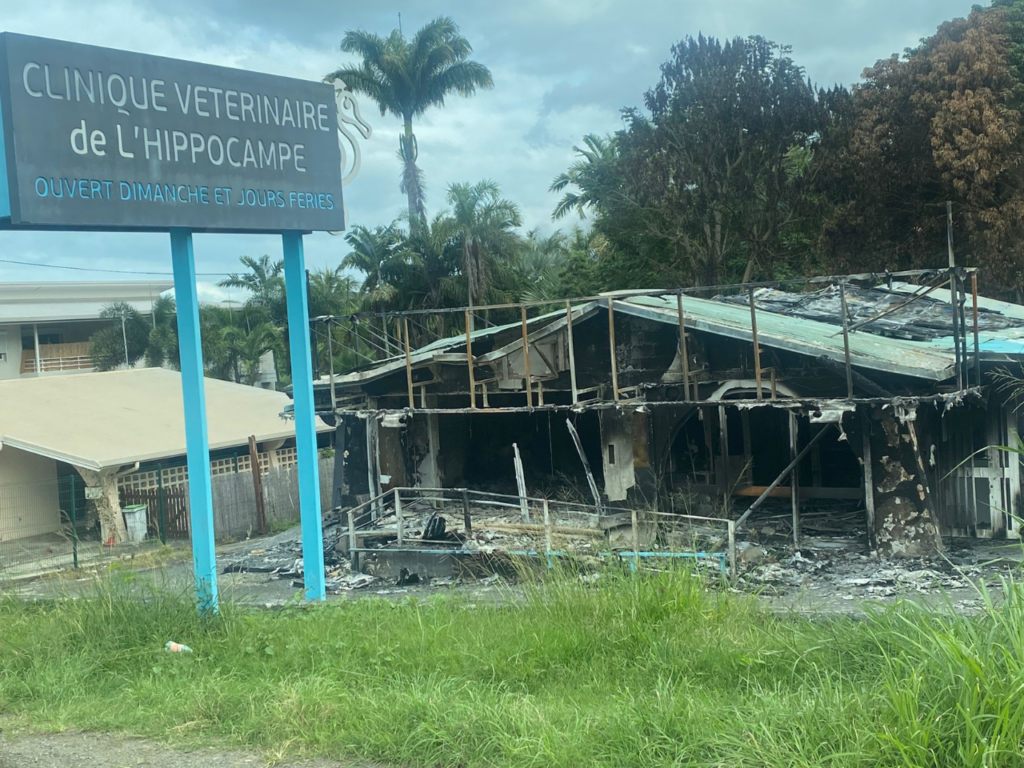
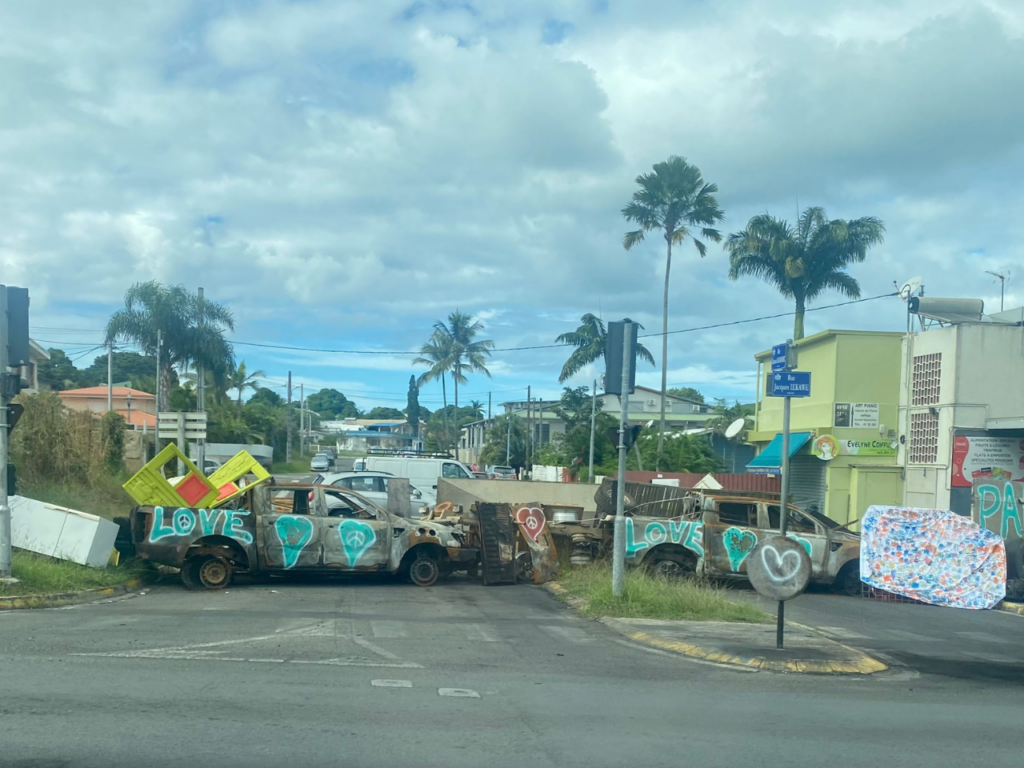
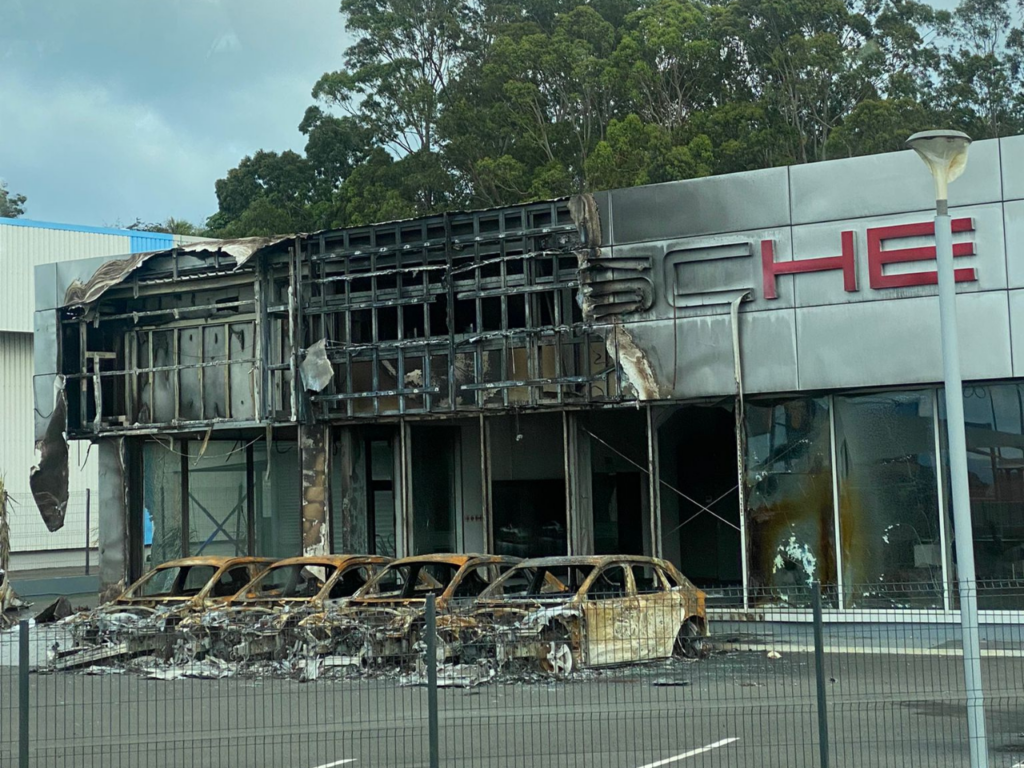
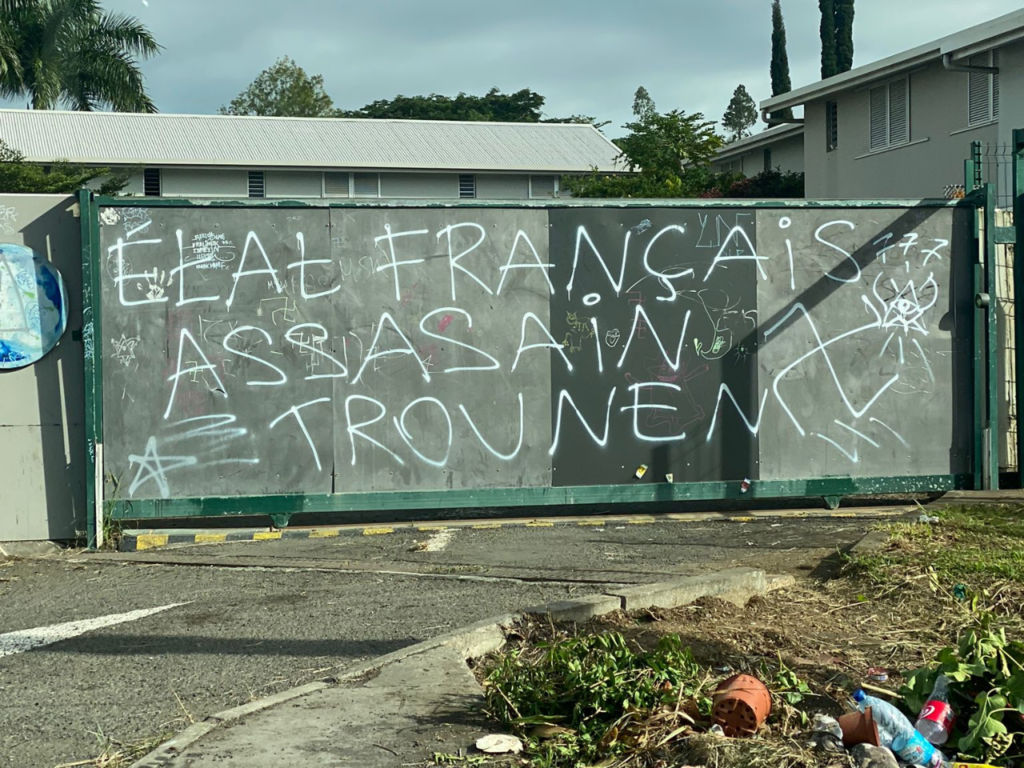
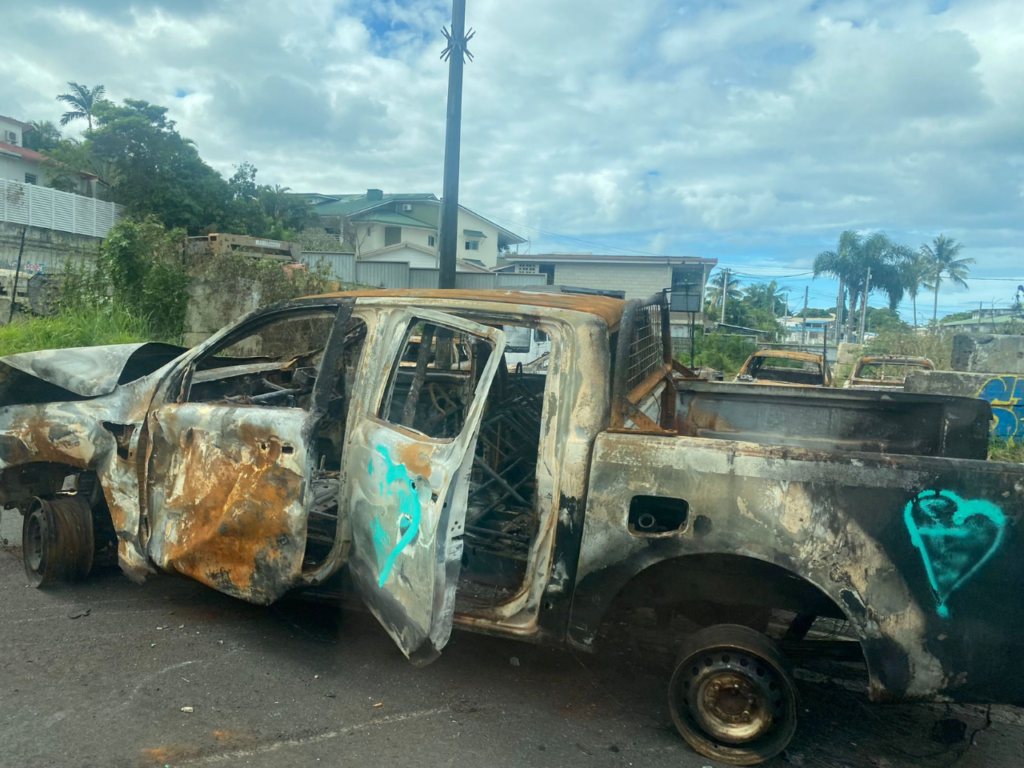
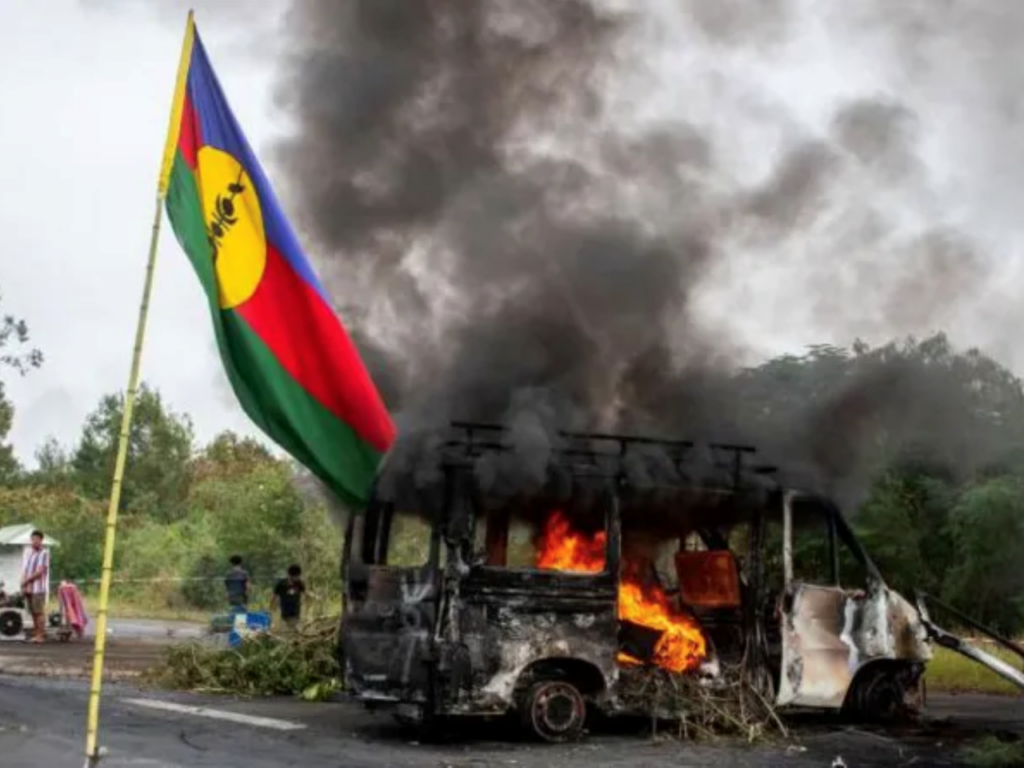
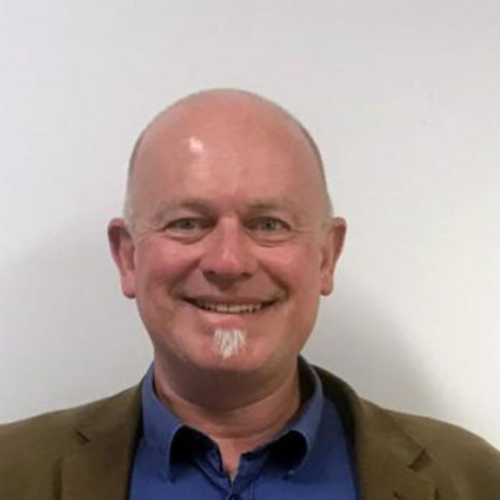
NOUMÉA, New Caledonia — This year, I planned a romantic getaway for my wife Tiffany – our first trip without our children. After a pleasant flight, we arrived and spent the night in Noumea on Thursday, May 9, 2024, in New Caledonia. [New Caledonia is a collective of islands of overseas France in the southwest Pacific Ocean.]
The next morning, we boarded a boat and sailed through turquoise waters to a resort on a small coral island where we stayed for three days. The trip felt utterly perfect until we stopped for lunch and noticed a tension in the air. Locals began gathering in larger and larger groups, moving through the streets. The next thing we knew, we became trapped in our hotel, shielding ourselves from the violence and chaos outside.
Read more conflict stories at Orato World Media.
Ferry never arrived: stranded amid protests
Interrupting our lunch, we gathered our luggage and called for a taxi, but it took a long time to arrive. Uneasiness set in, so when the car finally arrived, I felt relief. We climbed into the taxi and headed out of town along the highway. Halfway there, we saw piles of burning tires and large groups of protesters attempting to block the road. Something was happening, but we did not know what.
We arrived at the next resort for a one-night stay before our flight in the morning. After checking in, having dinner, and spending the night, we got up early for breakfast as we waited for the 6:00 a.m. ferry. The ferry never arrived.
Time ticked by, and I looked at my watch, growing angry. I immediately asked the hotel staff if they knew what happened. No one had answers for us. I rang the ferry company, but no one answered. After 7:00 a.m., I told my wife, “We have to find a taxi, or we will miss our flight.” I began calling the taxi service but the line remained busy and I gave up.
Going online, I searched for a car service and found a private limousine company. I dialed the number, and someone answered. “Hello, I can’t get my ride to the airport. Can you help me?” I asked. The ensuing silence made me nervous. I repeated, “Can you help me?” After a moment, the man answered, “No,” and I froze. He continued, “All the roads are blocked. I recommend you go back to your room and stay there. The airport is closed, there is bombing everywhere, and the violence is escalating.” Then, he cut off the call.
An unexpected harrowing stay at our resort
I went pale. My wife and I could barely believe it. I told her the story and we asked for the room key again, locking ourselves in. It felt like a horror movie and with no idea what to expect. Watching the news, we discovered riots erupted after lawmakers in Paris approved changes allowing more French residents to vote in local elections.
Indigenous leaders on the island said the change would effectively dilute the political influence of native peoples. We stood in shock, confined to the resort with an uncertain future. Every night, we slept with one eye open, fearing that looters might arrive.
In the normally idyllic mountain resort three kilometers from the local suburbs, we remained barricaded. Sandwiched between the two most violently affected areas, gunshots echoed across the valley. Fires raged, and smoke billowed from nearby villages. All the roads remained blocked, and the nearest shopping center fell to looters, and succumbed to fire. It became clear we would run out of food in a matter of days.
Caught in a kind of civil war, we monitored the news for days. They reported hundreds of people wounded and dead. Continually, we reached out to the Australian consular staff. As we waited for things to calm down, something happened. Just after dark, we began to hear noises, voices, and loud music near the resort.
A group of demonstrators advanced toward us. We all ran and locked ourselves in our rooms as they surrounded the place, trying to intimidate us. I felt terrified. My wife and I held hands, hidden behind the bed, as we listened to the screams and cries of other guests through the walls. The wait felt endless until slowly, the shouts faded away. We survived the violence.
Contacting the consulate and interviewing with the media
After days trapped on an island resort in New Caledonia, it felt like the Australian consulate disappeared. Fortunately, we connected with some New Zealanders at the resort who added us to a WhatsApp group to share information. No one seemed to know how to escape. In desperation, I contacted influential acquaintances in Australia, explaining our situation and begging for help. Within hours, my phone rang off the hook as my contacts alerted the international media, who wanted to know what was going on.
Radio and Television stations interviewed me so often, it became my full-time job. My wife managed my schedule, and I did six to eight interviews a day. It felt crazy. The media attention in Australia quickly pressured the consulate to take action. Within 10 days, the Australian Defense Force began negotiating with the French government to evacuate us. However, they faced numerous difficulties and could only rescue those close to the city.
The Australian Air Force began evacuating British, Canadian, Japanese, and eventually French citizens. However, we remained isolated, far from the city, and surrounded by pockets of violence. Days went by slowly, and we never knew if we would be the next target. In my mind, I feared the demonstrators may come in mass and set fire to the place.
In one call, I confronted the consulate. “What are you going to do about it?” I asked. They replied, “You just have to follow the advice of your hosts.” I explained, “The advice we’ve been given is to run into the jungle and hide if we’re attacked.” They responded, “We can’t give you an answer yet. You must wait for us to come up with a plan.” Then, they hung up, while our lives remained in danger.
Trapped amid violence and trying to survive
When we began to run out of food at the resort, we rationed what little we had left, surviving on rice and eggs. When supplies dwindled, some people searched for coconuts. The people in charge of the complex, with tears streaming down their cheeks, informed us they could no longer feed us. Each day felt the same as the last, with nothing to do but watch the phone for terrible news. Gunfire and bombs remained constant. From our vantage point, I occasionally saw cars explode meters away.
During this situation, I ran out of medicine for my hypertension and needed to go to a pharmacy. As soon as we heard an alternative route opened, I got a lift into town with other guests. While I felt panicked, I also had no choice. Everywhere I went, I saw violence. They burned ATMs, bombed petrol stations, and looted shops. Protesters lined the roads, and in some places, we needed to negotiate our passage. The terrifying experience left me worried we may not return to the hotel safely.
Amid this backdrop, almost miraculously, a pharmacy remained standing. I got what I needed, and on the drive back, I felt tense and anxious. As soon as we arrived at the resort, Tiffany ran up to the car and took me in her arms, happy to see me alive. People seemed truly desperate. Some New Zealanders nearby started moving around, and one, clearly traumatized, packed her bags and got on a boat with strangers. Normally, the trip cost $20, but she was willing to pay $600 to get to the city, even knowing that protesters were attacking the boats. I still don’t know if she made it, but I like to think she did.
A convoy through an apocalyptic landscape
In addition to the boats, some New Zealanders got a rental car and, with the resort’s help, planned to drive to town using back roads. I asked my wife what she thought, and she said, “No way, I won’t risk it. At least we know we’re safe here.” We admired their bravery but knew there were no guarantees of survival.
At that point, I called the consulate and told them, “We know how you can get us and others out of the Sierra.” They followed our advice, sent a security team, and looked for us. We navigated through shelling and past burning cars in an apocalyptic landscape. Every area we passed through was full of violence.
After almost three weeks, a convoy of seven people in two vans arrived at the hotel. We felt relieved and hopeful. On the way out, we saw how bad things were. We passed through checkpoints where we could have been dragged out. The officers briefed us on what to do if they shot at us or threw a Molotov cocktail at the convoy. They appeared to be prepared for anything.
Carjackings happened all the time, so we held our bags on our laps and told to run if the doors opened. At one point, a car stopped between the two vans, separating the convoy. I felt terrified. The security guys communicated by radio, expecting the worst.
Through burning cars and bombed out areas, we made it to the airport
It took me a while to come to my senses and during the drive, I took my wife’s trembling hands. We looked into each other’s eyes, catching our breath. No one dared to speak. Every intersection remained littered with burning cars and the aftermath of bombings. Demonstrators constantly stopped traffic. The violence and hellish scene repeated kilometer after kilometer.
This may sound crazy, but on the way, we passed through an area where people spray painted hearts, peace symbols, and phrases of love on the burnt bodies of cars. At that moment, it felt unreal. Tears flooded my eyes and I began to decompress. I saw something beautiful amidst the chaos, almost like a breath of life or a ray of light breaking through the shadows.
The shock of the first stretch turned into ecstasy at the sight. I knew, while we had a long way to go, we would make it home to our families. We arrived in the city and waited for hours in a hotel before being strapped with armbands and placed on the Hercules flight.
When the airplane took off, it felt amazing. Upon landing, everything moved so quickly. We got off the plane, went through customs, and boarded the second plane to our city. I tried to process my feelings from being surrounded by so much violence and trauma but could only feel the peace of the present moment. Then, I remember arriving and seeing my children, sister, and mother crying with joy for our safety. With tear-filled hugs, we gazed at one another; we made it.


































































































































































































































































































































































































































































